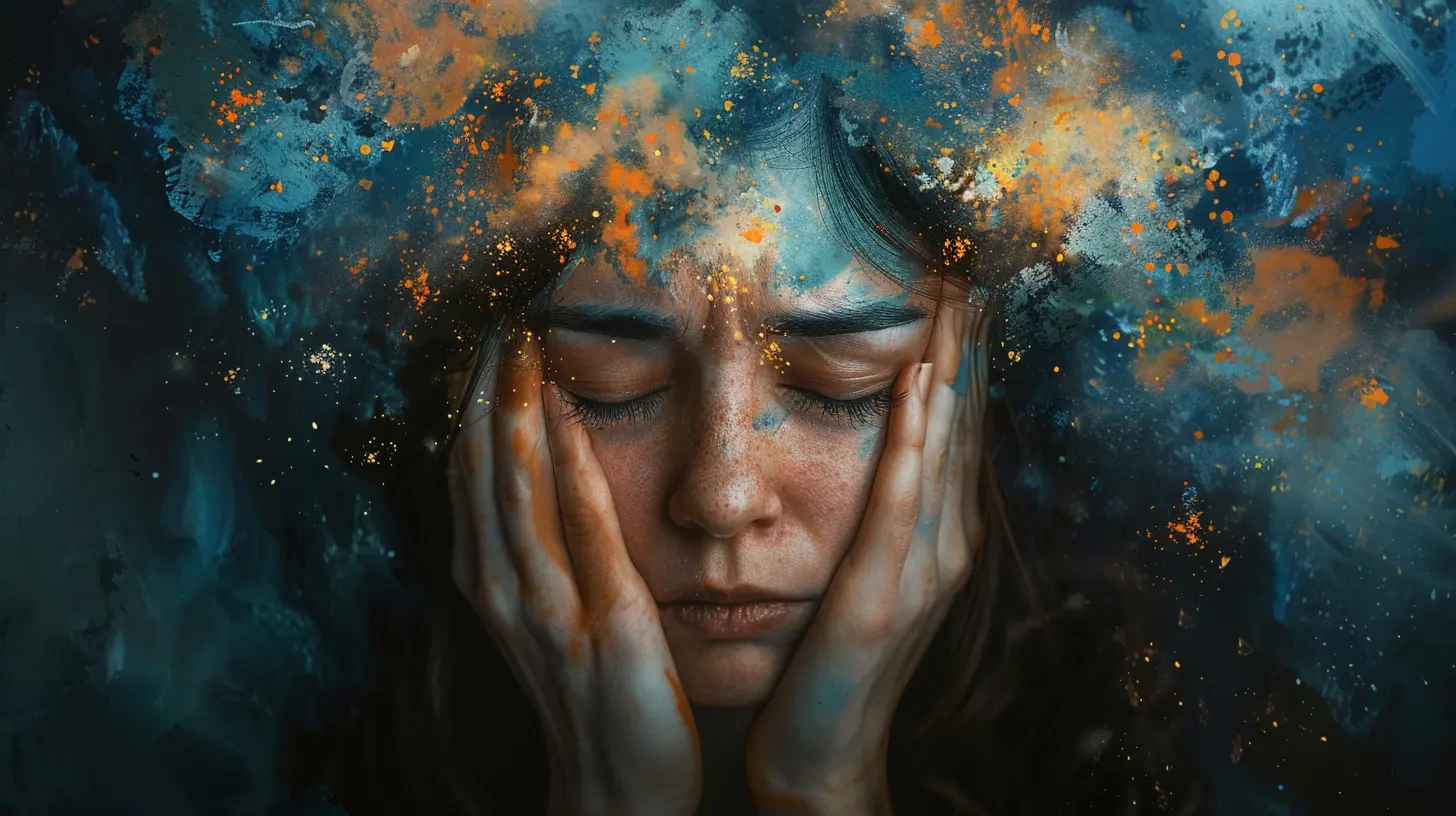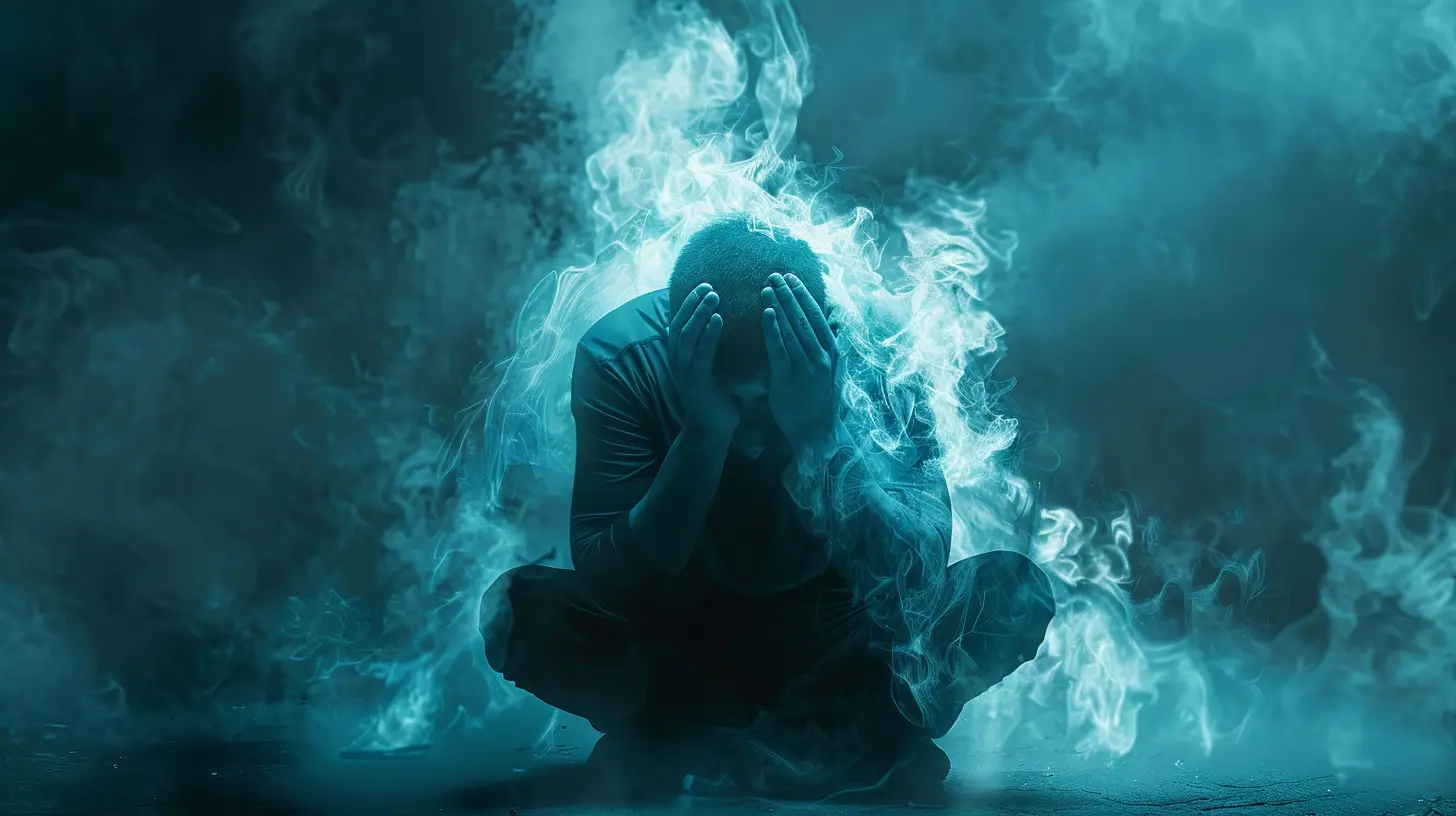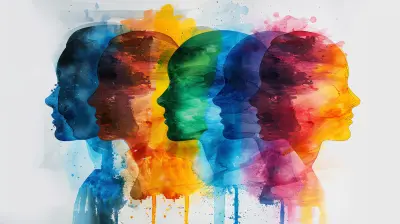28 December 2024
Anxiety is an all-too-familiar feeling for many of us. That heart-racing, stomach-twisting sensation can creep up seemingly out of nowhere, leaving us feeling overwhelmed and out of control. But have you ever wondered why anxiety strikes when it does? What are the hidden triggers that seem to set off this emotional alarm system?
In this article, we’re going to dive deep into the lesser-known causes of anxiety, peeling back the layers to help you understand the hidden triggers behind it. By the end, you’ll have a clearer picture of what may be fueling your anxiety and how to take the first steps toward managing it. So, grab a cup of tea, get comfortable, and let’s unpack this together!

What is Anxiety?
Before we jump into the hidden triggers, it’s helpful to understand what anxiety actually is. At its core, anxiety is a natural response to stress. It’s your brain’s way of telling you that something might be wrong or that you should be on high alert. Anxiety can manifest in many ways—physically, mentally, and emotionally. You might notice:- Racing thoughts
- Increased heart rate
- Sweaty palms
- Shortness of breath
- A general sense of dread or unease
In small doses, anxiety can be helpful. It keeps you sharp, focused, and ready to act. Think of it as your brain’s internal alarm system. But just like an over-sensitive smoke detector, anxiety can sometimes go off even when there’s no real danger.
Normal vs. Chronic Anxiety
It's important to distinguish between everyday anxiety and chronic anxiety. Feeling anxious before a big presentation or during times of change is completely normal. However, if your anxiety is persistent, overwhelming, and interferes with your daily life, it could be a sign of an anxiety disorder. That’s when understanding the triggers becomes crucial.
The Surface-Level Triggers
When we think of anxiety triggers, certain obvious things often come to mind: work stress, relationship problems, financial difficulties, or health concerns. These are the more visible stressors that can easily push anyone into an anxious state.But what about those times when you can't pinpoint a reason for your anxiety? You’re sitting at home, everything seems fine, but suddenly, your heart starts racing, and your mind spirals out of control. What’s going on? That’s where the hidden triggers come into play.

Uncovering the Hidden Triggers of Anxiety
Now, let’s explore some lesser-known causes of anxiety—those sneaky, hidden triggers that might be flying under your radar.1. Caffeine Overload
Yes, your beloved morning cup of coffee might be betraying you! Caffeine is a stimulant, and while it can give you that much-needed energy boost, it can also ramp up your anxiety levels. Consuming too much caffeine can stimulate your central nervous system and increase the same symptoms that come with anxiety, such as restlessness, rapid heartbeat, and jitteriness.Think about it: Have you ever noticed that your anxiety spikes after your second or third cup of coffee? It could be because caffeine is triggering your body’s fight-or-flight response, even when there’s nothing to be stressed about.
Pro Tip: If you're prone to anxiety, try cutting back on coffee or switching to decaf to see if it makes a difference.
2. Social Media and Screen Time
We live in a hyper-connected world, and while social media has its perks, it can also be a major source of anxiety. Scrolling through endless photos of people’s “perfect” lives can trigger feelings of inadequacy, comparison, and FOMO (Fear of Missing Out).Moreover, excessive screen time—whether it’s social media, news, or work-related—can overstimulate your brain and keep you in a constant state of alertness. This overstimulation can make it harder to relax and can even disrupt your sleep, which leads to—you guessed it—more anxiety.
Pro Tip: Set limits on your screen time and take regular digital detoxes to help calm your mind.
3. Poor Sleep Habits
Speaking of sleep, did you know that a lack of quality sleep can be a hidden trigger for anxiety? When you don’t get enough rest, your body doesn’t have the chance to recharge properly. This can leave you feeling on edge and more susceptible to stressors throughout the day.Sleep deprivation can also affect your brain’s ability to regulate emotions, making it harder to manage anxious thoughts. It’s a vicious cycle: Anxiety leads to poor sleep, and poor sleep leads to more anxiety.
Pro Tip: Develop a consistent bedtime routine, limit screen time before bed, and create a calm sleep environment to improve the quality of your rest.
4. Nutritional Deficiencies
What you eat (or don’t eat) can play a big role in your mental health. Research has shown that certain nutritional deficiencies—like a lack of magnesium, vitamin D, or omega-3 fatty acids—can contribute to increased anxiety.For example, magnesium is known to regulate neurotransmitters that send signals to your brain. A deficiency in magnesium can lead to feelings of nervousness and anxiety. Similarly, low levels of vitamin D have been linked to mood disorders, including anxiety and depression.
Pro Tip: Make sure you’re eating a balanced diet rich in whole foods, fruits, vegetables, and healthy fats. If necessary, consider supplementing with vitamins and minerals after consulting with a healthcare professional.
5. Unresolved Past Trauma
Sometimes the roots of anxiety go deep, stemming from unresolved past trauma. Whether it’s childhood experiences, a significant loss, or a particularly stressful event, trauma can leave a lasting impact on your emotional well-being. Even if you think you’ve moved past it, unresolved trauma can manifest as anxiety, often triggered by situations or people that remind you of the original event.For example, if you experienced bullying as a child, you might feel anxious in social situations as an adult, even if you’re no longer being mistreated. This is because your brain has learned to associate social interactions with danger.
Pro Tip: If you suspect unresolved trauma is contributing to your anxiety, consider seeking professional help from a therapist. Trauma-focused therapy can help you process and heal from these experiences.
6. Perfectionism and High Expectations
Are you your own worst critic? If so, perfectionism could be a hidden trigger of your anxiety. Holding yourself to impossibly high standards sets you up for constant stress and disappointment. When you’re always striving for perfection, even minor mistakes or setbacks can feel like catastrophes.This “all-or-nothing” mindset leaves little room for flexibility or self-compassion, making you more prone to anxiety when things don’t go as planned.
Pro Tip: Practice self-compassion and challenge your perfectionistic tendencies. Remember, no one is perfect, and mistakes are a normal part of life.
7. Environmental Factors
Your surroundings can also have a significant impact on your anxiety levels. For instance, living in a noisy or chaotic environment can heighten your stress response. Similarly, cluttered or disorganized spaces can make you feel overwhelmed and out of control.Even factors like harsh lighting or strong smells can act as sensory triggers for anxiety, especially for individuals who are highly sensitive to their environment.
Pro Tip: Take time to create a calm and organized living space. Decluttering your environment can help declutter your mind as well.
8. Hormonal Imbalances
Hormones play a huge role in regulating mood, and any imbalances can lead to increased anxiety. For example, fluctuations in estrogen and progesterone during the menstrual cycle, pregnancy, or menopause can trigger anxiety in women. Similarly, thyroid imbalances—both hyperthyroidism and hypothyroidism—can cause heightened anxiety symptoms.If your anxiety seems to align with certain phases of your hormonal cycle or if you've noticed other symptoms like fatigue or changes in weight, it might be worth discussing with your doctor.
Pro Tip: Track your symptoms and bring them up with a healthcare professional to explore whether hormonal imbalances might be contributing to your anxiety.

How to Manage and Overcome Anxiety Triggers
Understanding the hidden triggers of anxiety is the first step toward managing them. Once you’ve identified what might be contributing to your anxiety, you can take proactive steps to reduce its impact on your life.1. Mindfulness and Meditation
Mindfulness practices, such as meditation or deep breathing exercises, can help you become more aware of your thoughts and feelings without getting swept away by them. These practices can also help calm your nervous system, making it easier to manage anxiety in the moment.2. Physical Exercise
Exercise is a powerful tool for reducing anxiety. Physical activity releases endorphins, which are natural mood boosters, and can help reduce the physical symptoms of anxiety, such as tension and restlessness.3. Therapy
Sometimes, anxiety can be too overwhelming to manage on your own. Therapy, especially cognitive-behavioral therapy (CBT), can help you identify and challenge negative thought patterns that contribute to anxiety. Therapy can also provide you with strategies to cope with anxiety in a healthy way.4. Lifestyle Adjustments
From improving your sleep habits to reducing caffeine intake, making small lifestyle changes can have a big impact on your anxiety levels. Pay attention to how your daily habits—like diet, exercise, and screen time—affect your mood, and adjust as needed.Final Thoughts
Anxiety doesn’t always have an obvious cause. Sometimes, the triggers are hidden beneath the surface, quietly influencing the way we feel without us even realizing it. By taking the time to explore these hidden triggers—whether they stem from your environment, lifestyle, or past experiences—you can gain a deeper understanding of your anxiety and take steps to manage it more effectively.Remember, anxiety is a normal human emotion, but it doesn’t have to control your life. With the right tools and awareness, you can uncover the hidden triggers, work through them, and find a sense of calm in the midst of it all.










Wendy Tucker
Oh great, more hidden triggers—just what my anxiety needed!
February 3, 2025 at 4:46 PM